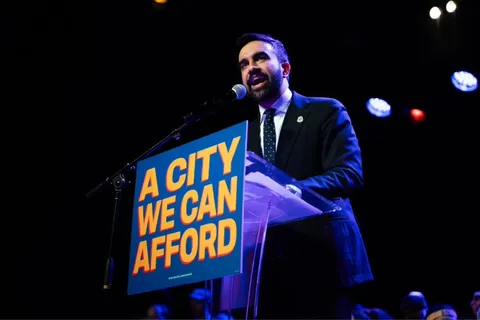On June 14 the day after Israel dropped bombs on Iran I was in my husband’s car at a gas station, which is fitting owing to various recent circumstances stemming from October 7, 2024.
As we are in New Jersey, owing to a dejure ordinance we were not allowed to pump our own gas—and owing to de facto custom we are forced to drive—as New Jersey intrastate public transit is not very useable.
“These cars are literally killing us!” I said as the attendant pumped our gas.
I went on one of my rants about how oil is the cause of so much harm. I’ve always deeply resented not being able to easily take public transit or my bike to get around —whether it is in my home state of California or where I am currently —marooned in New Jersey. My husband Chaz is from Wisconsin and his pleasant optimism stands out—especially at a gas station, especially in New Jersey.
He smiled and said, “We’re just getting gas—and by the way, you really are beautiful.”
Transforming my intensity into profound connection is one of his many skills.
Oil was the first modern disruptor—what AI is doing now, oil did when it arrived on the scene in the early 20th century.
One barrel of oil equals 11 years of human labor.
One barrel of crude oil can perform about 1700 kW h of work. A human laborer can perform about 0.6 kW h in one workday (IIER, 2011). Simple arithmetic reveals it takes over 11 years of human labor to do the same work potential in a barrel of oil. Even if humans are 2.5x more efficient at converting energy to work, the energy in one barrel of oil substitutes approximately 4.5 years of physical human labor. (Hagens, 2019)
What AI cracks open now, petroleum shattered then—worlds, economies, and the quiet rhythm of human toil. After the brutal calculus of chattel slavery—ownership of body, of breath, of generative force—oil crowned United States’ grim ascent. Many people view the engine of capitalism as cash or for deeds to dirt. Capitalism’s engine is is buried deep—deep in the black pressure of ancient rot, in the pipelines bleeding across stolen land.
Oil stole hundreds of millions of jobs around the world dissolved like sugar in the most bitter of coffees. It gave us the technology and power to transform the Manifest Destiny to the Westward Expansion. “There was gold out yonder,”but there was also oil— and we are no longer on the gold standard.
Control over oil—how to access and distribute it—has been the underlying motivation for a growing number of violent conflicts, with the United States often the aggressor since World War II.
My father, as a young man in the 82nd Airborne, landed in Lebanon in 1958. This was one of the first open military actions against sovereign soil that signaled to the world that the U.S. would harm you, your family, and take your land for access to the life force beneath your feet—oil.
I said open, that is pointed.
As a reward for his service, he was able to buy into the American Dream—a house. Where he had two kids, a dog, a cat, and a housewife that looked like a supermodel.
Though he did something very un-LA, he chose a home near his job and a bus line. And he often rode his bike, which was highly unusual in Los Angeles in the 1980s. He didn’t say oil and cars were the root of all evil, but he would talk about how long commutes were unhealthy—not just for people, but for the environment.
From my backyard, you could see the Hollywood sign, but the first time I could see it beyond the smog was owing to the visible progress of the Clear Air Act. I was five-years-old, it was it was my first day of kindergarten, at St Eugene’s Catholic School, a place that I walked to when my father was home and was dropped off in a car by my mother when he went to work early. I said,”Look mommy, Hollywood, are we famous?”
According to PBS and numerous other sources, the United States consumes an average of 20.6 million barrels of oil per day. A staggering 40% of that—9.1 million barrels—fuels our motor vehicles.
This reliance comes at an enormous cost. As the Union of Concerned Scientists reports, car emissions are a major source of pollution. Cars and trucks emit twenty percent of all greenhouse gases in the United States. Given that the US is the world's second-largest greenhouse gas emitter (and was the largest for decades), US vehicle emissions alone rank among the largest sources of greenhouse gases globally.
Furthermore, the connection between oil and war cannot be overstated. Many analysts argue that nearly every conflict since World War I has been linked to oil capture, oil rights, or oil distribution.
It is my unbending stance that you cannot genuinely be anti-war without being anti-car. Beyond being the second-leading cause of death for children in the US (after guns), the global dependence on cars drives systems that harm children worldwide – fueling conflict and environmental devastation.
To stop war and save our planet, we must end these interconnected disruptions harming both people and the nature we share and are part of. This fundamentally requires moving beyond the car, the market as a metric, and the generative AI —that is currently polluting our towns and our minds.
I type this ironically from my husband’s car on the way to Rutger’s New Brunswick to discuss environmental economics






